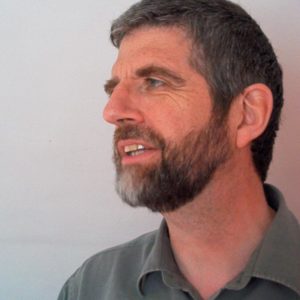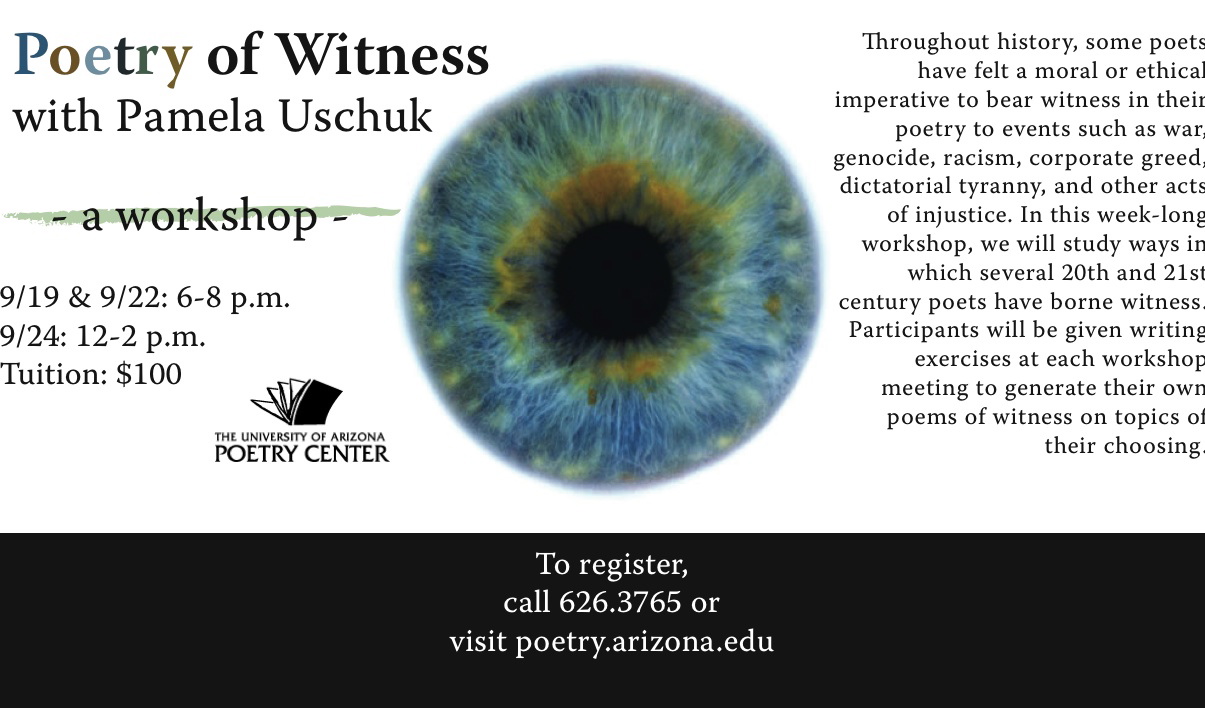A Lesson in Political Poetry

Looking for things to revise in my folder of old, unpublished poems, I came across this poem I wrote in early 2017. After all that has happened in 2020, it is eerily prescient. Yes, I remember writing the poem, but reading it with current eyes startles me—it is like reading someone else’s words. It has moved from the safe realm of hypothetical to a place that reads as diary—personal, confessional, present. It is unreal to me how it is no longer just me but someone else’s truth—a true microcosm. Here is the poem:
Thanks to the Children
Thanks to the children, I have another
cold today. Hacking a yellow smell
like clogged drains, my head swimming
like summer asphalt. Another cold, this
constant parade. Spring and it returns
with the tulips—was never truly dead
but just lingering. Hand sanitizer empty
and of course I never touch my face,
even to check for sadness. Never hide
coquettish, never blow kisses, never mock
mustache. People don’t trust men
with facial hair, I tell the President,
who knows this, but somehow not
schoolyard physics. Let’s form a line,
he says instead. Like a recess game,
clasping hands and daring the other side
to send Johnny right over—let’s hold
hands across America. So close, pore to pore,
our sweat with nowhere to go, permeating
each grasp. Forget the states on the flag
are in constellation only—ionic bonds. Forget
that the country air is so sweet in effect
because it’s free—a space between
the fingers. How easily a wire fence slips
or is circumvented here where we live
and let live. In the red, where roads
aren’t paved. Just a suggestion—
but forget immanent influenzas, stealthy
infections. A wall cannot keep out the birds,
cousins of air, I press. No, he says, ignore
Avian Flu, Smallpox outbreaks. It isn’t
part of our America. Not part of my agenda.
Says the man without looking at his planner.
Great! Only it’s hard to ignore this growing tickle
at the back of my throat. The way fear becomes
an interminable barking—to no effect. President
already turning, the air between constituents
growing. Gaps between atoms expanding in heat—
the space between us a molecule’s width
instead of half. You’re covered. Go back
to the game of Red Rover. But…I cough in alarm.
Cough. I cannot stop. I cannot stop it. But…
I steel myself, know that children pick up
on panic. That for every breath I take of theirs,
they are inhaling mine—this air we share. Coughing,
the heavy heart in my throat’s cavern throbbing
to ear. Don’t listen, I whisper. To myself,
my daughter, my son. A cold now and then
makes us stronger. We need air to survive. But
through muffled stink ear a voiceless fear
floats. Neighbor standing with neighbor—isn’t it
Great? Don’t worry. We’ve got it covered.
Refill the hand sanitizer and just forget
the children about your knees—how quickly
ignorance can piggyback an innocent touch.
These were my notes when submitting this poem to a current event poetry feature in April 2017:
“I live in a remote 800 person town in the “red state” of Idaho and generally avoid discussing politics. But in poetry circles you hear a lot about Trump’s wall. You hear a lot about his proposed budget cuts to the arts and increase to national defense. But what about other areas of his budget plan or his health related administrative appointments? Worrying about the recent Smallpox outbreaks in the Czech Republic due to the trends of parents not vaccinating their children, I came across this article https://www.washingtonpost.com/national/health-science/the-trump-administration-is-ill-prepared-for-a-global-pandemic/2017/04/08/59605bc6-1a49-11e7-9887-1a5314b56a08_story.html?utm_term=.e8d1945eb285 pointing out the unpreparedness in the current administration for a pandemic outbreak of infectious disease. Yikes, as if “Dawn of the Dead” and Cormac McCarthy’s “The Road” weren’t already giving me nightmares.”
Why am I sharing this now? As a way to say “I told you so?” Ha. Maybe a little bit—especially with the “no touching your eyes, nose and face” bit. That has always been my rule—one that my family would just not take seriously. Is it because I am becoming more overtly political in our country’s current state of crisis? Yes, I think this is maybe my personal “coming out” celebration. But much more importantly, I think this poem holds a crucial lesson for the future (mine, yours, ours, theirs): this poem was rejected and that was that.
This poem was rejected and I only submitted it to a few places before it fell out of my rotation and I never felt it good enough to even try to revise further. (Honestly, I’m embarrassed sharing it). Of course, it isn’t the strongest poem I’ve ever written, but in retrospect I wish I had believed in it more. I am taking this as a reminder, both as a writer and an editor, to look for poetry that matters. Even if it isn’t the best writing, there is something admirable in a force of conviction, something imperative in an idea. I should have worked on this poem.
Another lesson—important poetry is timely. This poem is now out of date. I used to think that a good poem had to be timeless. Because of this I would spend years refining each poem. But some of my best poems missed their moment. I have always believed that poetry is firmly rooted in time and even “classic” poetry reflects the era in which it was created. But what I didn’t realize is that this feeling of time is compressed for current poetry—it is often easy to tell if a poem is a year or two out of date. This is a lesson to write timely poetry intensely, quickly, and go with it. Work hard, not long. I will still let things set for a month to read with a fresh eye, but I will no longer let doubt rule my voice.
I feel, now more than ever, that poetry has a duty to be more than beautiful or entertaining. Responsive poetry has the ability and job to invoke standards of social justice. I wonder how many poems have made a reader stop to think. I wonder if a poem would have given emotional credence to the Washington Post’s journalism article—made it stick, made people recognize the importance of such words and work harder for change. And I wonder how many unpublished poems could have made a difference.
Reading my old poem’s ending, I am ashamed. I chose to ignore revising and submitting this poem. Took an easy way out due to fear. Spent time with my kids instead. How ironic. I wasn’t very political, especially in vocally pressing issues with which I privately disagreed. Especially in not realizing how an issue holding personal significance can quickly affect us all—how public policy isn’t just a wall somewhere, but here. And now. And coming for you.
So I am making this public promise to be better—to fight for social justice of all kinds and not just write, or think, pretty nature poems. Poetry is a medium of communication and all writing is political. We can and must speak up, and, to do that, we must stick with things that we know will matter—now and in all hypothetical futures.
 It seems so long ago now: Brexit, the British equivalent of America’s Trump moment. By a similar slight tipping of an almost equally divided electorate, that necessary legal fiction called The British People chose to leave the European Union.
It seems so long ago now: Brexit, the British equivalent of America’s Trump moment. By a similar slight tipping of an almost equally divided electorate, that necessary legal fiction called The British People chose to leave the European Union.